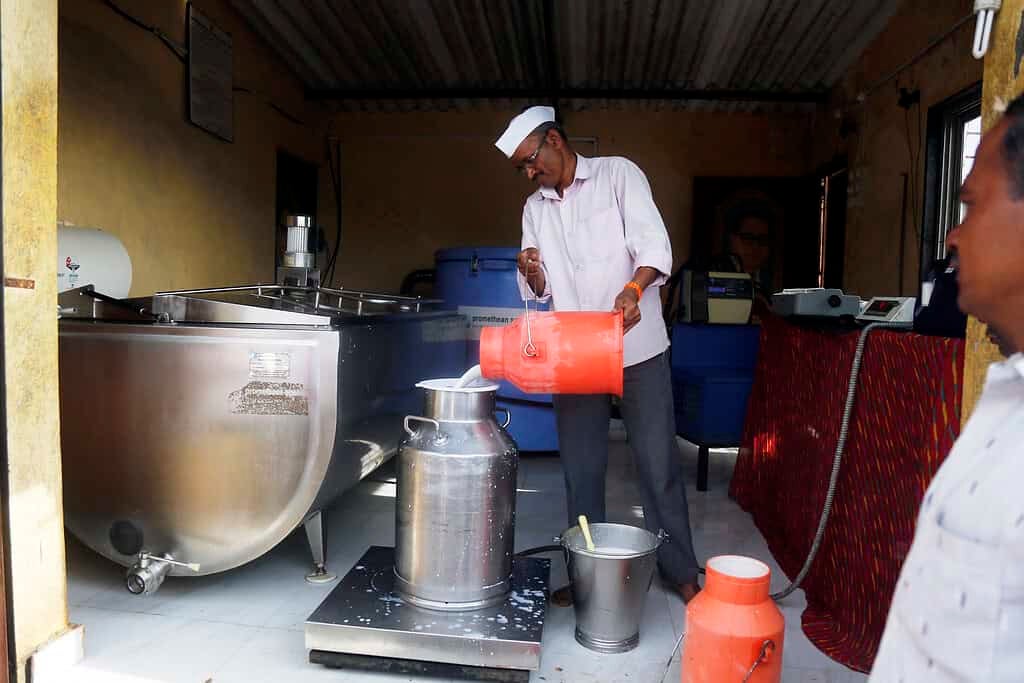
How corporations can move from compliance to competitive advantage through impact markets
With ESG and CSR on the ropes, it’s time to embrace new tools that incentivize economies that work for everyone.

🌟Cristina Ljungberg认为慈善是帮助解决世界不公的邀请,强调资本流动对产生重大影响的重要性。她通过个人经验阐述了慈善事业的‘超级力量’:快速、灵活和承担风险的能力,这些是其他人无法做到的。
🤝Cristina与Acumen的长期合作始于教育领域,逐步发展为无限制捐赠者,体现了她从学习者到贡献者的转变。她强调Acumen作为学习伙伴的重要性,以及Acumen社区在挑战和全面发展方面提供的支持。
🇸🇪Cristina指出瑞典在慈善领域落后于其在创新和技术方面的领先地位,主要原因缺乏必要的网络、咨询能力和支持系统。她呼吁建立更完善的慈善基础设施,使个人和基金会能够更有信心和效率地参与慈善事业。
🗣️Cristina建议潜在的慈善家‘开始行动,让工作教会你’,强调亲身参与和保持好奇心的重要性。她提倡‘邻近’的力量,即与一线工作者保持密切联系,信任他们的能力,同时保持谦逊,并从失败中学习。
From her home in Stockholm, Cristina Ljungberg has spent the past two decades channeling her capital and curiosity into bold solutions for women and girls. As a founder of The Case for Her and Giving Wings and a founding member and co-chair of the Maverick Collective, she focuses on moving capital where it can create the greatest impact. A longtime Acumen Partner and board member, Cristina and her husband Jonah support Acumen as unrestricted donors, helping drive capital where it’s needed most.
In this Q&A, Cristina shares the values that guide her giving, why Acumen remains her greatest learning partner, and what it takes to build a culture of philanthropy in the Nordics and beyond.
When Johan and I were entering our thirties and reflecting on how we wanted to show up in the world, we realized that the earlier we began our philanthropic journey, the more likely we would be to witness the impact of our giving. I wanted to learn, to be intentional, and so I joined The Philanthropy Workshop (TPW). In one of our very first sessions, we read Bill Gates’s Harvard commencement speech, where he described the chance to take on some of the world’s greatest inequities as the journey of a lifetime. That idea gripped me, and I knew I was all in.
Now, after two decades of this work, I continue to challenge myself: How can my capital be the most catalytic capital at the table? How can I make sure it stretches impact as far as possible? Over time, I’ve come to understand the particular “superpower” of the resources I have: to move quickly, be flexible, and take on risks that others can’t. That’s where philanthropy shines. Using it to de-risk follow-on capital — to unlock even greater flows of funding — is to me one of the most brilliant and powerful ways to create change.
The best advice I received early on was to align myself with an organization I could trust was doing world-class work, and then use that relationship as a way to learn. Acumen was that first deep dive into philanthropy. From the very beginning, they invested in me. They shaped me as a blended finance investor, helping me understand how philanthropy, impact funding, and venture capital could work together to drive change. Acumen has been a true learning partner, and they remain the philanthropic backbone for all the work I do beyond them.
Early on, Johan and I were anchor donors to Acumen’s original education portfolio, followed by years of supporting both the global and local Fellows programs. Today, we’ve shifted to becoming unrestricted donors because we’ve come to see that this is the most valuable form of capital we can provide. It gives Acumen the flexibility to move where the need is greatest, and that’s exactly how we want to show up.
Serving first on the advisory council and now on the board feels like a natural continuation of that journey — a chance to keep learning while also contributing. And just as important, the Acumen community itself has become a place where I can engage deeply, be challenged, and show up fully.
Sweden is a global leader in many areas — from innovation to technology — but when it comes to philanthropy, we are far behind. Historically, our strong social systems and legal structures left little room or perceived need for private philanthropy. But that’s no longer the case. Today, it’s easy to establish a foundation, and there is no shortage of capital. In fact, Sweden has more billionaires per capita than the U.S.
What we lack is the infrastructure: the networks, advisory capacity, and support systems that can help individuals and foundations engage in philanthropy with confidence and effectiveness. That gap is holding us back. But I believe this is ripe for change. We are beginning to see movement toward building the structures we’ve been missing, and with the right energy and collaboration, Europe, and the Nordics in particular, can play a powerful role in addressing the world’s most urgent challenges.
The best advice I can share comes from Jacqueline Novogratz: “Just start, and let the work teach you.” That has certainly been true for me, especially in partnership with a bold, systems-changing organization like Acumen.
I also believe deeply in the power of proximity. Get close to the work. Stay curious. As donors, our role is to trust those on the ground who are solving some of the world’s greatest challenges, while remaining humble about what we can and cannot understand from a distance. And don’t be afraid of failure. It’s inevitable, and it’s one of the most powerful ways to learn. Sometimes, if the work feels hard, it’s simply because it is hard. That doesn’t mean we should step back. It means we’re exactly where we’re supposed to be.
Right now, I’m reading “The Big We” by Hali Lee and “A Different Kind of Power” by Jacinda Ardern. Both are powerful reminders of leadership rooted in connection and possibility.
I’ve also been captivated by film lately. The Cycle of Love (2025), directed by Orlando von Einsiedel, tells the extraordinary story of PK Mahanandia, a Delhi street artist who, in 1977, bicycled 6,000 miles to reunite with the woman he loved. It’s a crazy, wonderful love story that stayed with me long after watching.
And perhaps the most beautiful film I’ve ever seen is Gaucho Gaucho (2024), a breathtaking celebration of the Argentine gauchos, communities of cowboys and cowgirls living beyond the boundaries of the modern world.

With ESG and CSR on the ropes, it’s time to embrace new tools that incentivize economies that work for everyone.
The post From Stockholm to the world: Moving money with meaning appeared first on Acumen.
AI辅助创作,多种专业模板,深度分析,高质量内容生成。从观点提取到深度思考,FishAI为您提供全方位的创作支持。新版本引入自定义参数,让您的创作更加个性化和精准。

鱼阅,AI 时代的下一个智能信息助手,助你摆脱信息焦虑